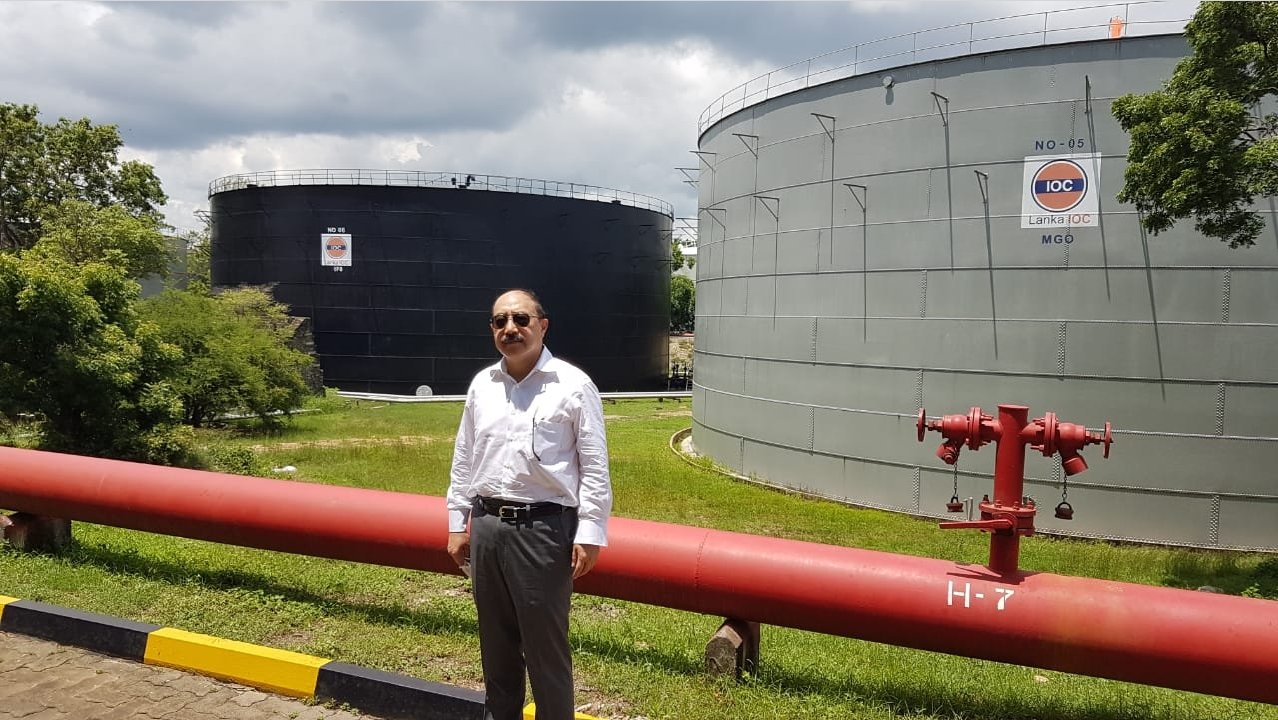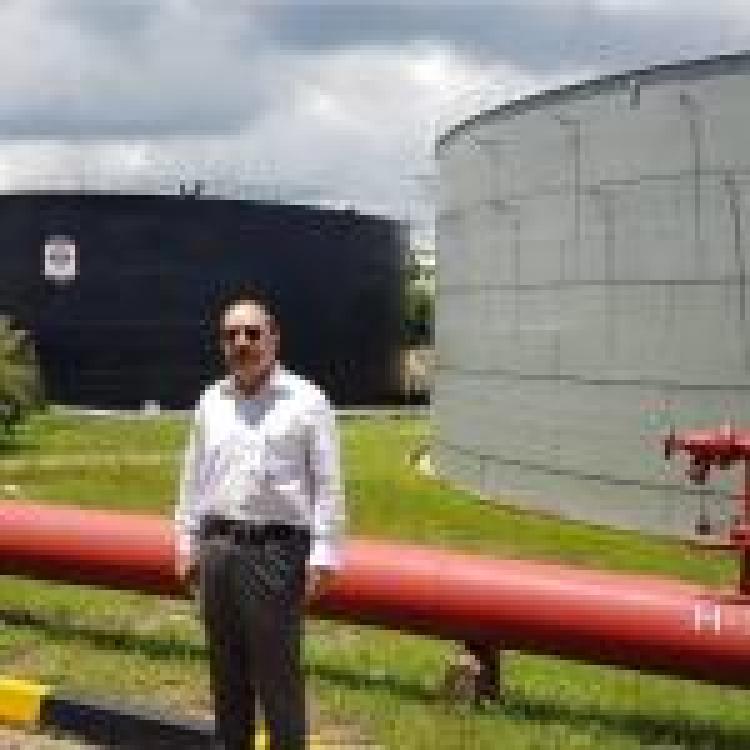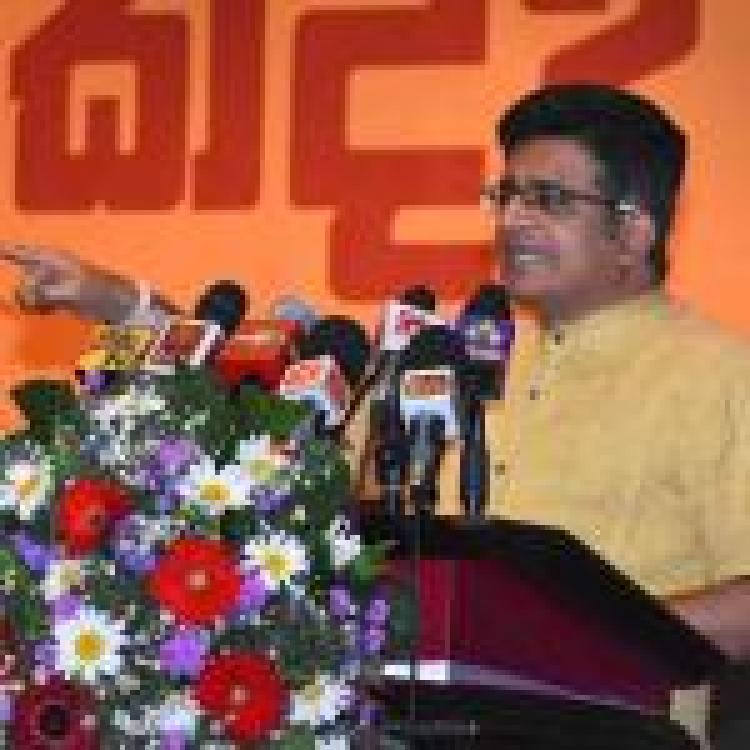
India’s Foreign Secretary Harsh Vardhan Shringla visits the Trincomalee oil tanks in October 2021.
Sri Lanka’s Energy Minister, Kanchana Wijesekara, has admitted that the country use of the oil tanks in Trincomalee hinges upon Indian approval due to an agreement signed in 2022.
In an exchange with former Energy Minister, Kabir Hashim, Wijesekara confessed that that 2022 deal says “if some business is conducted, especially in the Trincomalee district, the approval of the CPC or the LIOC and CPC joint venture and the LIOC has to be obtained”.
“We are trying to correct this for several months” he added.
The deal came amidst Sri Lanka’s economic crisis and has been criticised by certain Sinhala nationalist groups and Buddhist monks who have long voiced their objection to any “foreign involvement” in the project.
India’s Finance Minister Nirmala Siharaman visits the Trincomalee oil tanks in October 2023.
In October, India’s Finance Minister Nirmala Sitharaman concluded a visit to Sri Lanka last week, where she travelled to both Jaffna and Trincomalee, where she visited the oil tanks.
The Trincomalee Oil Tank is located in the heart of the Tamil North-East. The facility, which was once bombed by the Japanese during World War II, contains 99 oil storage tanks. Though the 1987 Indo-Lanka Accord called for joint development of the oil tanks, like many other parts of the agreement – such as devolution of land and police powers to a merged North-East province – it laid stagnant.
India has repeatedly called on Sri Lanka to permit devolution through the 13th Amendment but Sri Lanka has failed to do so.
Read more here.

.jfif)

